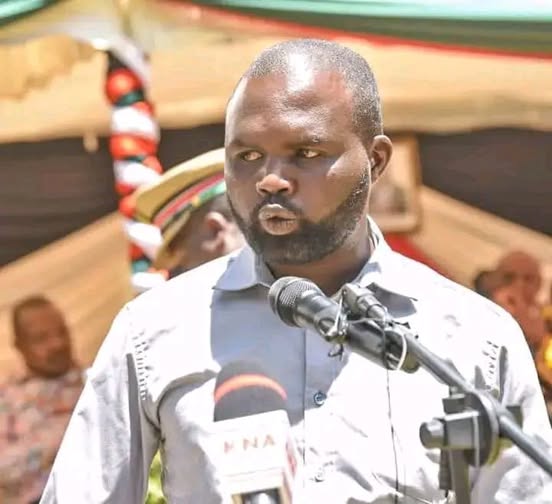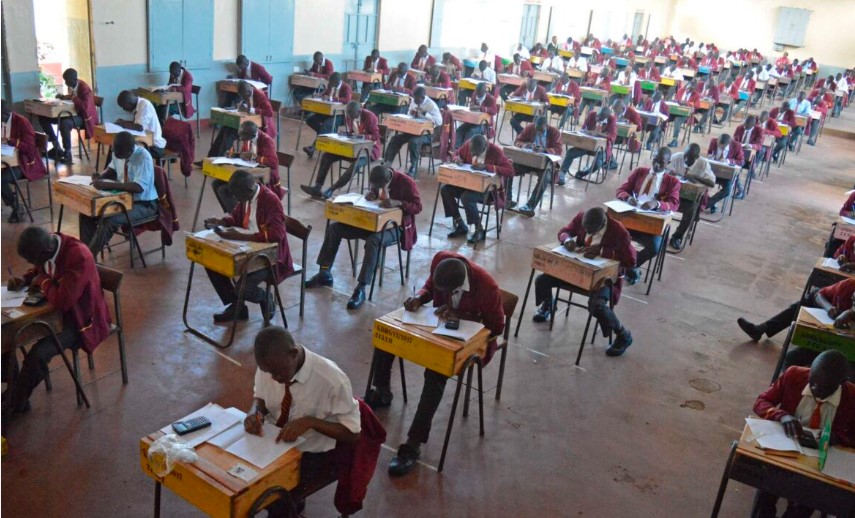Conscious candidates who look forward to garnering good grades must know that apart from comprehensive content and memory enhancement strategies, they need to perfect the art of examination. It is part of the Best Academic Practices: We preach and teach, here and there. KCSE is serious because it comes at the cusp of tertiary education. What the student will score will determine the course and college. No wonder, Edward Morgan Forster sagely said, “As long as learning is connected with earning, as long as certain jobs can only be reached through exams; so we must take this examination system very seriously.” Ideally, teachers ought to perfect the art of exams as they cover the syllabus in the candidate class. They should also achieve this important ambit by running an examination system. Candidates should sit for several exams, which should be marked, revised and analysed. Then, subject experts and examiners should come early: to polish pale parts. Therefore, in this treatise, permit me to anchor the art of exams on ten critical areas of focus: Exam preparation, content, depth and breadth, format, trends, skills, choice of questions, Table of Specification, seriousness and science practical.
▪ Proper Preparation for Exams
Exam requires academic, psychological and spiritual preparation. The place of purpose, prayer, preparation and persistence — are in the wise words of William Arthur Ward. He talks about four steps to achievement: One, plan purposely. Two, prepare prayerfully. Three, proceed positively, and four, pursue persistently. Spiritual preparation means that we acknowledge God and ask Him to give our candidates massive powers of memory and wealth of health. For in the entire examination period, they need to be whole and healthy. The wise man says in Proverbs 21:31: “The horse is prepared for the day of battle, but victory belongs to the Lord.” Moreover, academic preparation comes through cogent content mastery strategies. Good grasp of content crowns candidates with courage and confidence. This gives them ample psychological preparation, which in turn wards off tension that tightens when the examination bell blares. Plenty of preparation is the perfect antidote of stress, duress, fever, fear, fret, anxiety, angst and the pinch of panic.
▪ Building Content for Exams
When a candidate lacks relevant content, s/he finds it difficult to pen appropriate answers in exam. That is when a candidate begins looking at the invigilators like a dying lizard, and rolling eyes like a salamander in the exam room.
▪ Exam Depth and Breadth
When answering questions, it is important to consider marks allotted. Then, provide a comprehensive response. A good example is this one: When a candidate is to identify a sound pattern employed in an oral poem, pointing out use of assonance or consonance is not enough. That is a shallow response. It is prudent to pluck a line from the poem — illustrate, validate it — and if possible, point out its effectiveness if need be.
▪ Focusing on Setting Trends
Teachers should help candidates focus on trends in the setting and marking of exams. Using English to shed bright light on trends, let us look at Question 3 in English Paper Two. It is where the Literary/Comprehension Poem alternates with Oral Narratives/Folk tales. In 2018, KNEC tested a poem titled The Man He Killed. In 2019, they tested a Fairy Tale. The pattern has been quite clear. That means that going by the trends; we can predict the pattern of setting.
▪ Focusing on Exam Format
Every examination paper has a specific format, which should guide candidates on how to conduct extensive and intensive revision. For instance, in History and Government, Paper One tests purely Kenyan history, but Paper Two focuses on Themes in World History. English Paper One commonly known as Functional Skills, tests various functional write-ups, cloze test/broken passage, and various facets of oral skills like oral poetry, etiquette, interviews, sounds, public delivery, grooming, negotiation skills, listening skills, short forms, intonation (cadence), et cetera. Specifically in question one, a candidate poised for peerless performance should keep abreast with the formats of all manner of documents possibly tested in this section: Be it an institutional write-up like memo, study writing like book review, social text like electronic mail, or personal document like diaries. While attempting this question, the candidate must adhere to fixed format, correct tone, absolute economy of words and conventional use of language.
▪ Honing Examination Skills
Every paper tests some specific skills. Therefore, it behooves candidates to hone those skills to the core. A good example is English, where a student can only score highly when s/he has chiselled a skill like writing. For in order to express oneself in prose form, one requires wonderful writing skills.
▪ Proper Presentation of Responses
Candidates who eventually score quality grades know how to plot responses on paper. The handwriting should be neat, legible and decipherable. They should sketch graphs properly. They should draw diagrams properly. There is no way a candidate can write like a retired medical doctor, and at the same time expect to scoop good grades.
▪ Correct Choice of Questions
There are papers, which allow students to choose questions. In this case, they should make a perfect choice. Consider the first question in English Paper Three. A candidate has the large latitude to choose between narratives — started or ended composition. It can be writing a story that brings out the true meaning of a proverb or saying. This question can come in the form of expository, compare and contrast or argumentative essay. In this case, the candidate must choose the question to attempt. The same case is applicable in question three — questions based on optional set texts — that is, if the teacher has prepared the students in more than one optional set texts.
▪ Exam Tables of Specification
Also known as Test Blueprint (TB), Table of Specification (ToS) is a table that specifies ‘a must come areas’ and skills tested in each topic. It is what KNEC uses to develop assessment areas. Teachers should work closely with students to identify these areas.
▪ Doing all Exams Seriously
They should take every exam seriously. Candidates must steel their strength. They should get rid of every form of laziness that looms large in some exam rooms. They should shun silly mistakes. Leaving blank spaces in any exam depicts that a candidate lacks seriousness, which eventually punctures the tyre of peak performance.
▪ Preparing for Practical Exams
Finally, candidates must know that the practical papers, in any of the subjects, carry huge chunks of marks. Therefore, candidates must blend theoretical with practical knowledge.
By Victor Ochieng’
The writer rolls out academic talks in schools. He builds the capacity of teachers on Best Academic Practices.
Get more stories from our website: Education News
You can also follow our social media pages on Twitter: Education News KE and Facebook: Education News Newspaper for timely updates.






